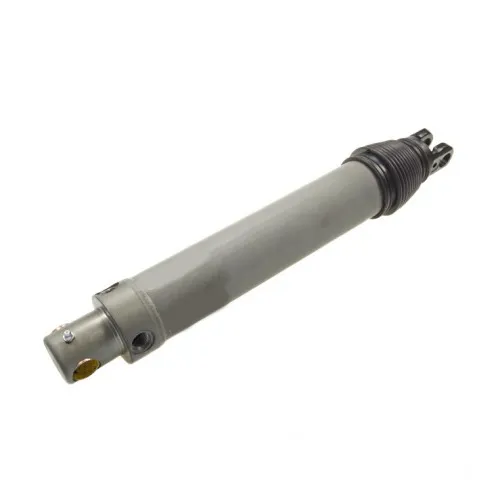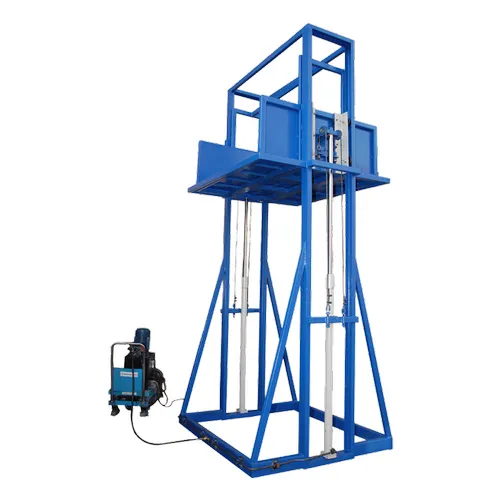Hydraulic Cylinder For Goods Lift
₹25,500.0
| Type | Automatic |
| Bore Size | 63 mm |
| Rod Size | 45 mm |
| Stroke Length | 50-5000 mm |
| Application | Elevator |
| Brand | Spareage |
- Description
- Additional information
- Reviews (0)
- Q & A
- Sustainability Remark
- More Offers
- Store Policies
- Inquiries
We are among the reputed organizations, deeply engaged in offering an optimum quality range of Hydraulic Cylinder For Goods Lift.
Features:
- Sturdy design
- Simple installation
- Rust resistance
| brands | Spareage |
|---|
You must be logged in to post a review.
Q & A
Hydraulics can be considered relatively sustainable when compared to other forms of mechanical power transmission. However, the sustainability of hydraulics depends on various factors, including the efficiency of the system, the energy source used, and the overall environmental impact.
Here are some key considerations regarding the sustainability of hydraulics:
Energy Efficiency: Hydraulics can be efficient when properly designed and maintained. However, hydraulic systems can experience energy losses due to factors such as fluid leaks, friction, and heat dissipation. Regular maintenance and using high-quality components can help minimize these losses and improve overall energy efficiency.
Environmental Impact: The environmental impact of hydraulics primarily stems from the type of fluid used. Traditional hydraulic systems often employ petroleum-based fluids that can be harmful to the environment if leaked or improperly disposed of. However, there are now more sustainable alternatives available, such as biodegradable hydraulic fluids made from vegetable oils or synthetic esters.
Renewable Energy Integration: One way to enhance the sustainability of hydraulic systems is by integrating them with renewable energy sources. For example, hydraulic systems can be coupled with solar or wind power to reduce dependence on fossil fuels. This combination enables the use of clean energy to generate hydraulic pressure, making the system more sustainable.
Lifecycle Considerations: Assessing the overall sustainability of hydraulic systems requires considering their entire lifecycle, including manufacturing, usage, and disposal. The extraction and processing of raw materials, such as metals and fluids, can have environmental implications. Additionally, the proper disposal or recycling of hydraulic components is crucial to minimize waste and environmental impact.
Application-Specific Factors: The sustainability of hydraulics can also vary depending on the specific application. Some applications, such as heavy machinery in construction or transportation, may have greater energy requirements and environmental impacts compared to smaller-scale applications.
To summarize, while hydraulics can be sustainable, it is essential to optimize their efficiency, use environmentally friendly fluids, integrate renewable energy sources, and consider the lifecycle implications. Continuous improvements in design, technology, and the adoption of sustainable practices can enhance the overall sustainability of hydraulic systems.
General Inquiries
There are no inquiries yet.


















Reviews
There are no reviews yet.